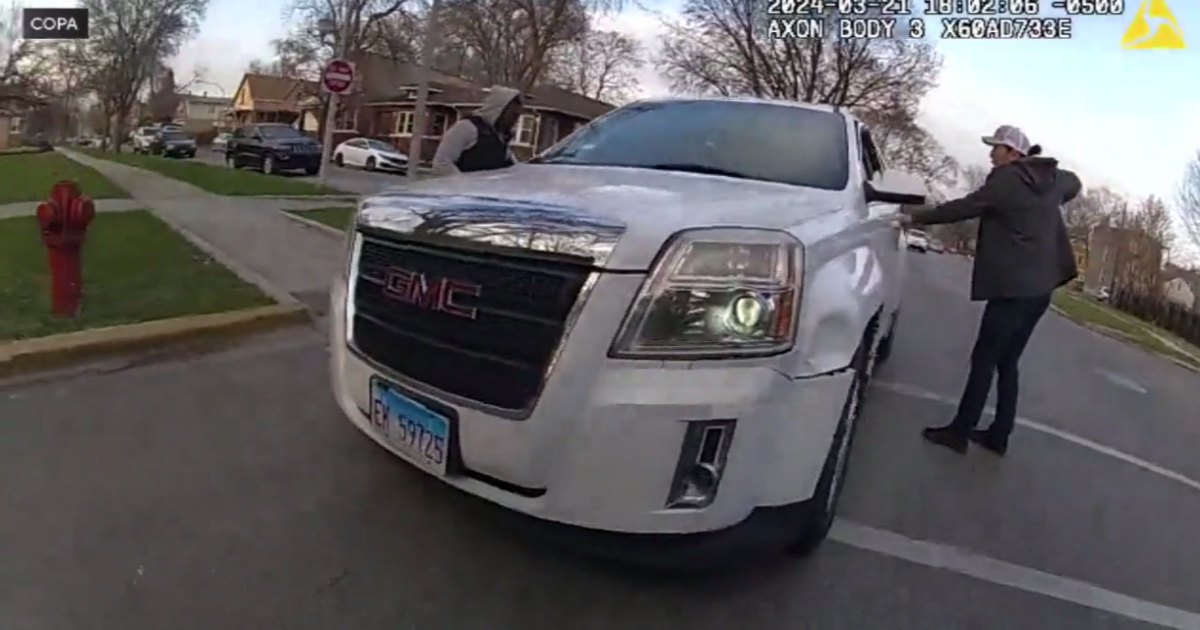When Cops Go To Jail
CHICAGO (STMW) - When former Chicago Police Cmdr. Jon Burge reports to prison to serve his 54-month sentence for perjury and obstruction of justice, he may want toconsider the experiences of one of his former homicide detectives.
William Pedersen served 15 months in the federal prison at Oxford, Wis., on a 1992 conviction for theft of public records. He ran into trouble with the law in his side job doing background checks of job applicants.
The moment he walked into prison, he knew he was under a microscope by his fellow inmates because he was a cop.
"You would get hit with shoulders as you walked down the hall the first month," said Pedersen, now 64 — a year older than Burge.
"But things calmed down. You don't want to stand out and you don't want people to think you are afraid. You just want to be in the shadows and do your time."
The U.S. Bureau of Prisons will consider Burge's poor health, his notoriety and the nature of his conviction before deciding where he will serve his prison term, officials say.
"Everyone is evaluated in terms of any danger they may pose and any dangers they may be confronted with," said Sergio Acosta, a former assistant U.S. attorney who was chief of the general-crimes section before going into private practice with the law firm Hinshaw & Culbertson.
Burge, who has been fighting prostate cancer, was convicted of perjury and obstruction of justice for lying in a deposition in a lawsuit accusing him and other Chicago Police officers of torturing suspects.
At his sentencing Friday, prosecutors said he trampled the rights of defendants. Burge apologized for putting the Chicago Police Department in a poor light, but did not address the torture allegations.
Acosta said Burge's sentence should serve as a warning to cops committing crimes and encourage the honest ones "that there is a place for them to come forward and report it."
Burge is among at least 54 law enforcement officers charged by U.S. Attorney Patrick Fitzgerald since 2005. At least 20 of those officers were on the Chicago Police Department.
Cook County State's Attorney Anita Alvarez also has been active in prosecuting cops. Since she took office in December 2008, she has prosecuted 29 law enforcement officers, including 11 Chicago police officers.
When cops like them are sent to the Cook County Jail on state charges, they automatically go to Cermak Hospital for 48 hours of observation, said Steve Patterson, a spokesman for Sheriff Tom Dart.
"The reason for that is the concern about them committing suicide because they were sworn to uphold the law and are now charged with violating the law," Patterson said.
Every cop who enters the Cook County Jail is offered protective custody, and virtually every one of them accepts it, Patterson said.
"For their safety and the safety of the jail, we are willing to put them in their own cell for 23 hours a day," he said. "They come out one hour a day for a shower and recreation and a phone call by themselves. It's a lonely existence, but for some officers who are in jail it's a better alternative than being in the same tier as someone you've arrested."
At least 53 law enforcement officials are in the custody of the Illinois Department of Corrections after being convicted of crimes, said Sharyn Elman, a state corrections spokeswoman.
Unlike the Cook County Jail, though, Elman said, law enforcement officers are not automatically placed in protective custody in the state prison system.
"If [corrections officials] thought they might come to harm, they might be placed in a cell where they think that would not happen," she said. "But it's on a case-by-base basis that affects every inmate. We don't have any protocol set up for former law enforcement officials."
Pedersen said he was sent to federal prison for working in a "gray area" of selling information about individuals' criminal backgrounds.
"There is no way I would have done this if I knew there would be federal charges," he said. "I would never risk my career for that. Twenty-seven years down the drain and my pension gone?"
Pedersen said he was placed in the general population when he arrived in prison.
"It was not a bad place," he said. "But it's not a country club by any stretch of the imagination."
Pedersen said he was assigned a job cleaning tables in the prison cafeteria, but a mobster from Chicago decided he didn't want a cop to have what was considered a cushy job. So the mobster pulled some strings and Pedersen became a dish washer.
"The inmates ran the asylum and the Outfit guys were on top," he said. "Later on down the road, the guy became friendly and apologized."
Pedersen said he roomed with three cops and a mob thief from Taylor Street.
Eventually, he got a job running the inmate clothing exchange. For instance, prisoners with holes in their socks could come to Pedersen for new ones. He said he broke tradition and did not charge inmates for his services. The currency among inmates included cans of soda, bags of Doritos, cookies and other coveted items.
"I became king of the castle at that point," Pedersen said.
But he said he never was a favorite of the administrators, who treated him like a traitor. Most inmates were allowed to complete their sentences at a halfway house when they had 30 to 90 days left on their prison terms. Pedersen said he served his entire sentence, called "going to the door" by inmates.
"I went in a staunch conservative and came out a raving liberal," Pedersen said. "I do see things from the other side. The drug mule gets the same time as the head of the organization. It doesn't make sense."
Pedersen said he struggled to make a living after prison.
"A felony conviction is a life sentence," he said.
He said he applied for insurance and real estate jobs, but was fired when he admitted on license applications that he was a felon.
Pedersen said in desperation he told Sears he did not have a criminal record. Ironically, a background check exposed his lie after he worked for the company for about five months, he said.
"My boss said he was sorry to see me go because they never had someone work so hard," Pedersen said.
He said he worked for a while as an investigator in the Cook County public defender's office.
Then, after a legal battle, he obtained an Illinois private detective's license and is now working again as a private eye. He also has launched a new online consulting firm, coldcasegroup.com.
Pedersen said he tries to share his prison experiences with other convicted law enforcement officers who are preparing to go to prison.
"I've done it about five times," he said, adding that he reached out to John Ambrose, a U.S. deputy marshal sentenced to four years in prison for allegedly supplying the mob with government secrets. Ambrose was sent to the same Texas prison where Ambrose's father, a Chicago cop convicted of corruption, died.
"I have talked to a few of them and eased their minds about what to expect," Pedersen said.
As for Burge, Pedersen said, he thinks he'll do OK behind bars.
"Jon is gruff, but I have seen him with tears in his eyes when he's talking to a victim's family," said Pedersen, adding that he never saw torture under Burge's command.
"Jon can relate to people," Pedersen said. "He will handle himself just fine."
© Sun-Times Media Wire Chicago Sun-Times 2010. All Rights Reserved. This material may not be published, broadcast, rewritten, or redistributed



